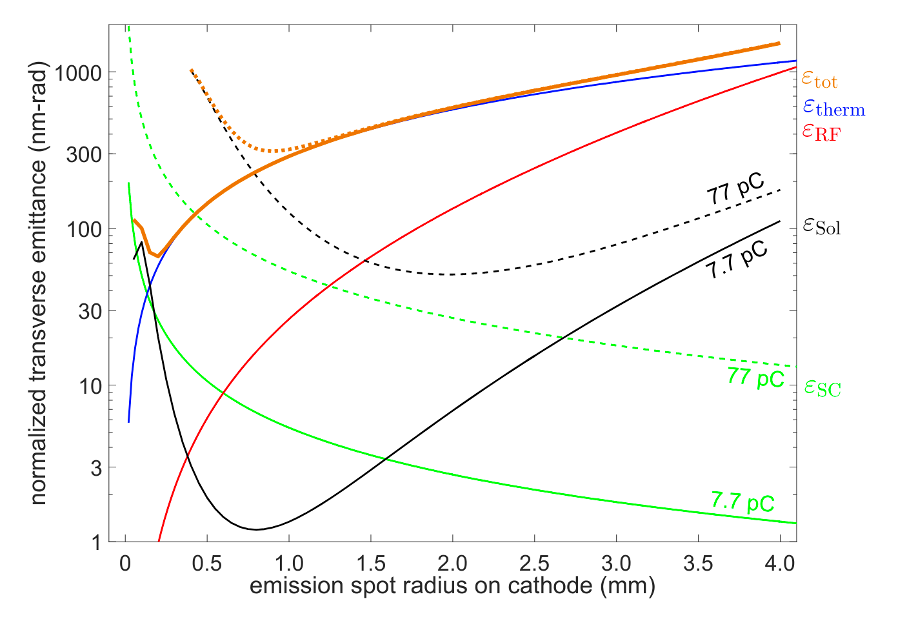Department High Brightness Beams
Beam Dynamics and Instrumentation
Beam Dynamics for High-Brightness Beams
We conduct beam dynamics studies to support the development and optimization of high-brightness electron accelerators. Our focus lies in versatile operation modes for photoinjectors, space-charge dominated beam transport, emittance optimization, and simulated commissioning. Using analytical description and advanced computational models, we develop commissioning strategies that incorporate correction elements, beam diagnostics, and available machine parameters to steer the accelerator toward optimal operating conditions. Through this work, we contribute to the realization of next-generation accelerators that enable cutting-edge research across a broad range of applications. For photoinjectors, we examine operation modes that serve FEL light sources, ultrafast scattering, and electron beam water treatment.
Beam Dynamics of SRF Photoinjectors – From Analytical Models to Machine Learning Optimization
SRF photoinjectors are powerful electron sources, delivering MeV beam energies, ultrashort pulses, and high brightness at high repetition rates—essential for applications like ultrafast electron diffraction, Terahertz experiments, energy recovery linacs, and free-electron laser injectors. However, optimizing beam properties is complex due to the vast number of machine parameter combinations.
Our approach leverages the full range of modeling tools—from analytical approximations to machine learning-assisted optimization—to enable fast, ideally real-time beam tuning based on simulations and measurement-driven models. We significantly reduce computational time by replacing costly simulations with neural network approximations. Additionally, our reinforcement learning strategy uses fast derivative computation to optimize beam properties more efficiently than conventional methods while maintaining a defined accuracy.
Publications and Talks
- E. Brookes, Achieving diverse beam modes with modelling and optimisation for the versatile SRF photoelectron gun at SEALab, Proceedings WEPS043 IPAC 2025
- B. Alberdi Esuain, Beam Dynamics and Instrumentation for MeV Electron Scattering with an SRF Photoinjector, HU thesis 2024.


